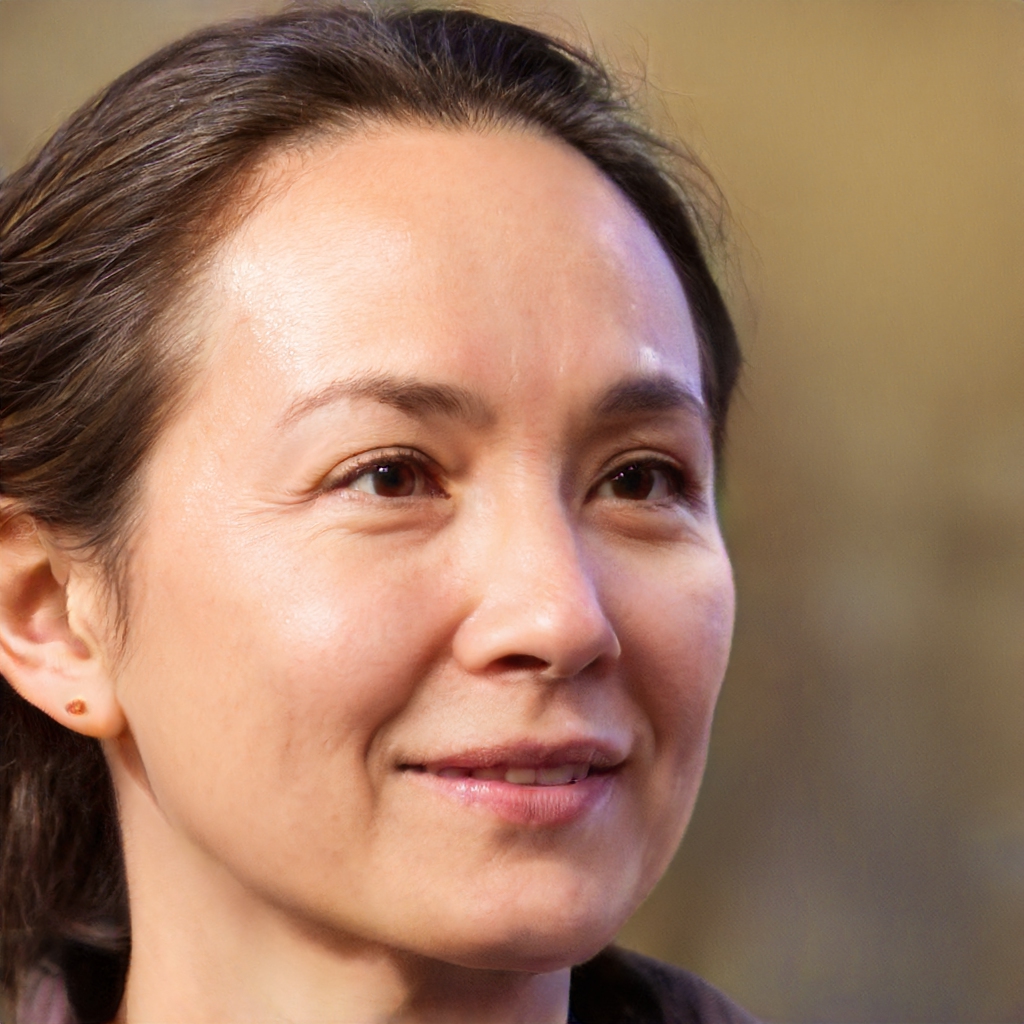Learning To Say No - From People Pleaser To Self-Advocate
Learning to say no can be a powerful tool in our lives. Sometimes, we feel pressured to say yes to everything, but understanding when to decline can lead to better balance and control
Author:Sanah ConnorReviewer:Stefano MclaughlinJun 25, 202410.2K Shares176K Views

Learning to say nocan be a powerful tool in our lives. Sometimes, we feel pressured to say yes to everything, but understanding when to decline can lead to better balance and control. There are many reasons why setting boundaries and learning to say no can empower us in different parts of our lives, and we'll examine them below.
Important Of Saying No To People
Saying no to people is an essential skill that many struggle to develop, yet it's crucial for maintaining personal boundaries, managing time effectively, and prioritizing one's own needs and well-being. Here are some key reasons why saying no is important:
- Protecting boundaries -Saying no allows individuals to set and maintain healthy boundaries. It establishes limits on what one is willing to do or tolerate, preventing others from overstepping or taking advantage.
- Preserving time and energy -Time is a finite resource, and saying no helps safeguard it. By declining tasks, commitments, or requests that don't align with one's priorities or goals, individuals can allocate their time and energy more efficiently toward activities that are meaningful and fulfilling.
- Avoiding over-commitment -Agreeing to every request or invitation can lead to overcommitment and burnout. Saying no allows individuals to avoid spreading themselves too thin and ensures that they can fulfill their existing obligations effectively.
- Maintaining focus -Saying no helps individuals stay focused on their objectives and priorities. It prevents distractions and allows them to concentrate on tasks that are essential to their personal or professional growth.
- Respecting personal needs -Everyone has unique needs and limitations, and saying no is a way of honoring and prioritizing those needs. Whether it's the need for rest, solitude, or self-care, declining certain demands can contribute to overall well-being and mental health.
- Fostering assertiveness -Learning to say no assertively can boost self-confidence and self-esteem. It reinforces the idea that one's opinions, preferences, and boundaries are valid and worthy of respect.
- Encouraging honest communication -Saying no respectfully and honestly promotes clear communication and transparency in relationships. It allows individuals to express their limitations or concerns openly, fostering understanding and trust.
- Setting a positive example -By demonstrating the ability to say no when necessary, individuals encourage others to do the same. This can create a culture of respect for boundaries and mutual understanding in personal and professional settings.
Overcoming Fear And Guilt
Confronting the root of our fears bravely is necessary to overcome fear. It necessitates a readiness to confront our fears, face our discomfort, and confront the myths that keep us from moving forward. Fear is often the result of uncertainty and the unknown, things that seem more real in our imaginations than they are. By bringing these concerns to light, we can take them apart piece by piece until they no longer have as much influence over us.
It takes perseverance, self-compassion, and a readiness to accept vulnerability to complete this process; it is not simple. However, we develop resilience with every little stride forward, becoming more assured of our capacity to face life's obstacles head-on with bravery and grace.
Guilt may also be a heavy burden on the psyche, influencing our choices and behaviors. However, guilt results from our views and interpretations, much like fear. To overcome it, we must first honestly and humbly accept our faults, realizing that imperfection is a necessary component of being human.
We are then able to move on with genuine acts of atonement and reconciliation from this position of acceptance. This could be asking for forgiveness, offering an apology, or just reflecting on our mistakes to become better people.
Strategies For Saying No Politely
Learning to say no can be challenging, especially when you want to decline a request without causing offense or friction in your relationship. Fortunately, there are strategies you can employ to gracefully decline while still maintaining respect and kindness towards others.
- Express gratitude -Start by expressing gratitude for the opportunity or invitation. Acknowledge the request positively to show appreciation for being considered.
- Be honest but brief -Provide a clear and honest reason for declining, but keep it concise. You don't need to go into elaborate detail; a simple explanation is often sufficient.
- Use "I" statements -Frame your response using "I" statements to take ownership of your decision. This helps to convey that your decision is based on your circumstances or priorities.
- Offer alternatives (if possible) -If appropriate, offer alternatives to show that you're still willing to help in some capacity. Suggesting other solutions or compromises can soften the impact of your refusal.
- Practice assertiveness -Maintain a confident and assertive tone while delivering your response. Stand firm in your decision without apologizing excessively or wavering.
- Use positive language -Keep your language positive and avoid negativity or defensiveness. Focus on what you can do rather than what you can't.
- Set boundaries -Emphasize the importance of setting boundaries and explain that your decision aligns with your personal or professional boundaries. This reinforces the legitimacy of your refusal.
- Offer appreciation again -End your response by expressing gratitude once more. Reiterate your appreciation for the opportunity or request, reaffirming your respect for the person making the ask.
- Practice active listening -If the requester expresses disappointment or tries to persuade you, practice active listening. Validate their feelings and reiterate your decision calmly and respectfully.
- Follow up with kindness -After saying no, follow up with a gesture of kindness or appreciation to maintain a positive relationship. A small gesture or kind word can help alleviate any potential tension.
Saying No In Different Contexts
Learning to say no effectively is an essential skill that applies to various aspects of life, including work, personal relationships, and social interactions. Each context presents unique challenges and considerations, but the principles of assertiveness and boundary-setting remain consistent.
Work Environment
Saying no at work may be a skillful thing. It's critical to strike a balance between assertiveness and tact, particularly when turning down assignments or requests from superiors or coworkers. It's critical to establish limits and control expectations to prevent burnout and over-commitment.
It takes honesty, open communication, and the capacity to provide substitutes where feasible to say no at work. You can efficiently prioritize your workload and keep a good work-life balance by politely declining activities that surpass your capacity or competence.
Personal Life
To preserve one's mental and emotional health, it is equally crucial to say no in personal relationships. It's crucial to voice your demands and boundaries, whether it's turning down social invites, establishing limits with friends and family, or saying no to extra obligations outside of work.
People who can say no without feeling guilty or sorry about it are better able to prioritize taking care of themselves and concentrate on relationships and activities that fit with their values and objectives. To sustain successful relationships while respecting their own needs and priorities, people must be able to navigate personal boundaries and expectations with effectiveness and assertiveness.
Social Situations
Saying no in social settings can be difficult at times, particularly when one is subject to peer pressure or the need to win over others. But it's important to keep in mind that defining limits is essential to preserving self-respect and honesty.
It is powerful to stand by your decisions, whether it is turning down alcohol at a party, declining to participate in activities that make you uncomfortable, or shunning rumors and negativity. It's possible to say no in social situations without being aggressive; instead, one can do it with grace and decency, upholding one's moral principles and promoting sincere relationships.
Learning To Say No - FAQ
Why Do I Struggle To Say No?
Sometimes, you may find it hard to say 'no' to someone because you genuinely want to help out, but can't. Maybe you're already overworked and don't have the time, or maybe you don't have the skills or the experience to help, but it can be uncomfortable not being able to help when you want to.
What Is The Definition Of Learning To Say No?
It means you need to decline or refuse(say no) a few things before you destroy yourself by accepting (saying yes) each and everything (demands/commands/requests) repeatedly. It's also a popular productivity hack; learning to say no is one of the best ways to make time for your priorities.
Why Is It Important To Say No?
The power of saying no really comes down to the effects it has on our brains. When we say no more often, we shift the way our brain thinks and reacts to situations, allowing us more ability to make decisions for ourselves. This has a tremendous effect on our mental health, as it allows us to value ourselves more.
Final Thoughts
Through learning to say no, we not only honor ourselves but also foster healthier relationships built on mutual respect and understanding. As we assert our boundaries and prioritize our own needs, we pave the way for greater authenticity and fulfillment in all aspects of life. So, let us continue on this empowering path, knowing that each no uttered is a powerful affirmation of our self-worth and a step toward living life on our terms.

Sanah Connor
Author
Sanah Connor is a Yoga Master and expert in Nutrition, holding a Master of Public Health in Nutrition from Harvard University. With over 15 years of experience in the field, Sanah specializes in creating personalized wellness plans that promote balanced nutrition, mindful eating, and physical fitness for optimal well-being.
Beyond her professional work, Sanah is an avid advocate of holistic living and wellness. She finds fulfillment in practicing meditation, cultivating organic gardening, volunteering for community health initiatives, and indulging in creative writing. These diverse interests reflect her commitment to a well-rounded and fulfilling life, enriching both her personal and professional endeavors.
Her mission is to inspire individuals to make informed choices and embrace holistic wellness for a happier, healthier life journey.

Stefano Mclaughlin
Reviewer
Stefano Mclaughlin is a Psychologist focused on mental health, emotional well-being, and healthcare policy. He studied Psychology and Public Health at the University of Massachusetts Amherst, gaining a deep understanding of the intersection between mental health and public policy.
Stefano's mission is clear: he aims to destigmatize mental health discussions, improve access to mental healthcare, and promote emotional well-being for all. Drawing from personal experiences with anxiety and depression, Stefano shares real stories to make mental health topics more relatable and less intimidating.
In addition to his advocacy work, Stefano enjoys delving into books, experimenting in the kitchen, and embarking on new adventures. These hobbies fuel his creativity and inspire fresh perspectives for his advocacy work.
Latest Articles
Popular Articles
